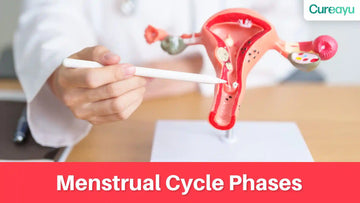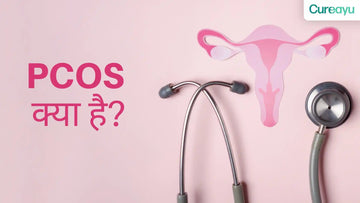Menopause is a natural biological process that marks the end of a woman's reproductive years. It typically occurs between the ages of 45 and 55, but the experience of menopause can vary significantly among women. The transition into menopause, known as perimenopause, can last several years and brings with it a variety of physical and emotional changes. Understanding the meaning of menopause and its symptoms is crucial to navigating this life stage with awareness and preparedness.
Menopause meaning goes beyond the simple cessation of menstruation; it’s a time of hormonal fluctuation that affects various bodily functions. From mood swings to hot flashes, women may experience a wide range of symptoms, some of which can be challenging. This blog will delve into the details of menopause, its symptoms, causes, and when it’s necessary to seek medical advice.
What Is Menopause?
Menopause meaning refers to the time in a woman’s life when her menstrual cycles permanently stop, typically after 12 consecutive months without a period. This occurs as the ovaries cease to produce estrogen and progesterone, two hormones essential for regulating the menstrual cycle. The reduction of these hormones leads to the end of a woman's fertility, and it brings about numerous physical and emotional changes.
The transition to menopause, called perimenopause, can start several years before menopause itself. During this time, women may experience irregular periods and a wide range of symptoms as the body adjusts to fluctuating hormone levels. Menopause is officially confirmed after a woman has gone a full year without a menstrual period, signaling the end of her reproductive years.
Menopause Symptoms
-
Hot Flashes and Night Sweats
Hot flashes are one of the most common menopause symptoms. A sudden sensation of heat can spread across the body, especially in the face, neck, and chest. Night sweats, or excessive sweating during sleep, often accompany these hot flashes. These symptoms are caused by the body's response to fluctuating estrogen levels, which affect the hypothalamus, the part of the brain that regulates body temperature. -
Mood Swings and Irritability
Hormonal imbalances during menopause can lead to emotional changes such as irritability, anxiety, and mood swings. Estrogen plays a role in the regulation of neurotransmitters like serotonin, which affects mood. The decrease in estrogen can therefore lead to feelings of sadness, frustration, and emotional instability. -
Vaginal Dryness and Discomfort
The decrease in estrogen production can cause the tissues of the vagina to become drier and thinner, leading to discomfort during sexual activity or even daily tasks. This condition, known as vaginal atrophy, may also lead to an increased risk of urinary tract infections and can affect a woman’s quality of life if left untreated. -
Sleep Disturbances
Many women experience difficulties with sleep during menopause. Insomnia, frequent waking, or restless sleep are common. This may be due to night sweats, but hormonal changes can also disrupt sleep patterns directly, leading to fatigue and reduced energy levels during the day. -
Weight Gain and Slowed Metabolism
Weight gain, particularly around the abdomen, is a common concern during menopause. This is due to a decrease in estrogen levels, which can slow metabolism and affect how the body stores fat. Additionally, age-related muscle loss can contribute to difficulty maintaining a healthy weight.
Also Read: Early Signs and Symptoms of Breast Cancer: What You Need to Know
Causes of Menopause
-
Natural Decline of Reproductive Hormones
The primary cause of menopause is the natural decline in estrogen and progesterone production as a woman ages. As the ovaries produce fewer hormones, ovulation becomes irregular, and eventually, menstrual periods cease altogether. -
Surgical Removal of the Ovaries (Oophorectomy)
Surgical removal of the ovaries leads to an immediate onset of menopause, known as surgical menopause. Without the ovaries, the body no longer produces significant levels of reproductive hormones, triggering menopause symptoms. -
Chemotherapy and Radiation Therapy
Treatments such as chemotherapy and radiation can damage the ovaries and reduce hormone production, leading to early or sudden menopause. This type of menopause may come with more intense symptoms compared to natural menopause. -
Primary Ovarian Insufficiency
Some women experience premature menopause due to a condition called primary ovarian insufficiency, where the ovaries stop functioning before the age of 40. This can result from genetic factors or autoimmune diseases.
When To See A Doctor
While menopause is a natural process, certain symptoms may require medical intervention. If menopause symptoms become severe, such as debilitating hot flashes, persistent sleep disturbances, or emotional distress that affects your daily life, it's essential to seek medical advice. Additionally, if irregular periods continue for an extended time or you experience unusual bleeding after menopause, you should consult a healthcare provider. A doctor can help manage symptoms through hormone replacement therapy (HRT), lifestyle modifications, or alternative treatments tailored to individual needs.
Also Read: Hormonal Imbalance Symptoms: Signs, Causes, and Solutions
Risk Factors
- Age: Women over the age of 45 are more likely to experience menopause naturally.
- Family History: A family history of early menopause can increase the likelihood of early menopause in some women.
- Smoking: Smoking has been linked to earlier onset of menopause due to its impact on hormone levels.
- Chemotherapy or Radiation: Cancer treatments can damage the ovaries, leading to early menopause.
- Autoimmune Diseases: Certain autoimmune conditions can affect the ovaries and trigger early menopause.
Complications
- Osteoporosis: The decrease in estrogen levels can lead to weakened bones, increasing the risk of fractures and osteoporosis.
- Cardiovascular Disease: Menopause increases the risk of heart disease due to lower estrogen levels, which may affect cholesterol levels and blood pressure.
- Urinary Incontinence: Weakening of the pelvic muscles during menopause can lead to bladder control problems and urinary incontinence.
- Weight Gain: Hormonal changes can lead to metabolic shifts, increasing the likelihood of weight gain during menopause.
Also Read: Effective Treatments for Irregular Periods: Understanding the Causes and Symptoms
Conclusion
Menopause is a significant phase in a woman's life that comes with both physical and emotional challenges. Understanding menopause meaning and recognizing its symptoms can help women navigate this period with more confidence. While menopause marks the end of fertility, it also offers a chance for renewal and self-care. Women can manage menopause symptoms through a combination of lifestyle changes, medical treatments, and support from healthcare professionals. By staying informed and proactive, women can embrace this life stage and maintain a healthy, active lifestyle well into their post-menopausal years.












